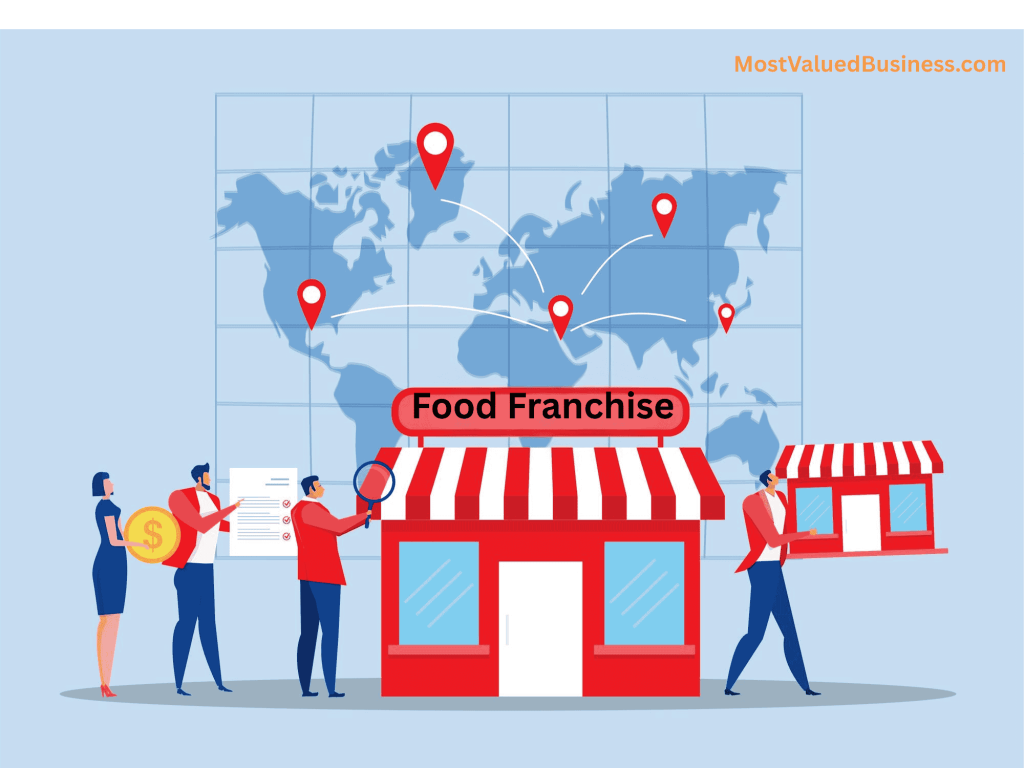Smart Tips Every Investor Should Know Before Starting a Food Franchise
The food franchise industry continues to thrive, even in uncertain economic times. With consumers seeking convenience, affordability, and consistent quality, food franchises present an excellent opportunity for investors looking to build long-term success.
However, diving into this space requires more than just capital – it takes research, strategy, and a clear understanding of the market.
This guide breaks down everything investors should keep in mind before getting started, from understanding consumer trends to managing operations effectively. By the end, you’ll have a roadmap that will help you make smarter decisions when launching your franchise journey.
Understanding the Demand for Food Franchises:
Food is not just a necessity – it’s a cultural experience, a social activity, and for many, a daily indulgence. Because of this, the food industry is one of the most resilient sectors in the franchise world. Even during recessions, consumers tend to maintain food purchases, especially from fast casual, quick-service, and affordable dining options.
The rise of delivery apps, health-conscious eating, and global cuisine trends has only expanded opportunities for investors. Today, food franchises range from traditional burger chains to vegan concepts, coffee shops, and international-inspired eateries. This diversity allows investors to find a model that aligns with both their personal interests and local market needs.
Still, before committing, investors must evaluate consumer demand in their region, assess competitor saturation, and ensure the franchise they choose can adapt to changing trends.

Key Factors to Evaluate Before Investing:
Launching a food franchise is exciting, but it requires careful planning. Here are some essential considerations:
- Brand Recognition: Established names come with built-in trust, making it easier to attract customers quickly.
- Operational Support: Franchisors offering strong training, supply chain logistics, and marketing programs can make operations smoother.
- Initial Costs: Food franchises often involve equipment, real estate, and inventory, so understanding upfront and recurring fees is critical.
- Market Location: Visibility, accessibility, and foot traffic can determine your success.
- Flexibility and Trends: Brands that adapt to consumer preferences – such as plant-based menus or eco-friendly packaging – are better positioned for long-term growth.
By assessing these elements, investors can reduce risks and set their business up for profitability.
Opening a Food Business: What Investors Should Prioritize:
One of the biggest decisions you’ll face is choosing the right franchise model. When opening a food business, it’s important to prioritize systems and strategies that maximize both efficiency and customer satisfaction. Unlike independent restaurants, franchises often provide step-by-step operational support, but success still depends on execution.
Investors should focus on the following areas:
- Consistent Quality: Customers expect the same taste and service each visit, and franchises succeed when they deliver this reliability.
- Staff Training: A well-trained team ensures smooth daily operations and enhances customer experiences.
- Technology Integration: Digital ordering systems, contactless payments, and loyalty apps are no longer optional – they’re expected.
- Community Connection: Food franchises that invest in local partnerships and events often build stronger customer loyalty.
These factors not only support profitability but also create a sustainable business model in a competitive market.
Financial Planning for Franchise Success:
Food franchises require significant financial investment, and understanding both upfront and ongoing costs is vital. Investors should prepare for:
- Franchise Fees: The right to operate under a brand name often involves a one-time payment.
- Royalty Fees: Ongoing percentages of sales revenue go to the franchisor.
- Real Estate and Build-Out: Location setup, equipment, and renovation costs can be substantial.
- Inventory and Supplies: Stocking ingredients and packaging is an ongoing expense.
- Marketing: While franchisors often run national campaigns, local promotions remain essential.
By creating a detailed business plan, investors can anticipate these expenses and avoid financial surprises.
Training and Support: The Value of Franchisor Guidance:
One of the main advantages of buying into a food franchise is the support system provided by the franchisor. Training programs often cover everything from day-to-day operations to marketing strategies. Key benefits include:
- Comprehensive Training – Owners and staff learn how to maintain consistency in food preparation and service.
- Ongoing Assistance – Many franchisors provide regional managers or business coaches to help with performance.
- Marketing Resources – Access to proven advertising strategies reduces the learning curve.
- Technology Tools – Software solutions for scheduling, ordering, and reporting make management more efficient.
Strong franchisor support allows investors to focus more on customer relationships and local growth rather than reinventing the wheel.
Marketing Your Food Franchise:
Even with a recognizable brand, localized marketing is crucial to standing out in your area. Successful food franchise marketing strategies often include:
- Grand Opening Campaigns – Limited-time offers or community events create buzz.
- Social Media Presence – Engaging content on Instagram, TikTok, and Facebook keeps your franchise top-of-mind.
- Local Partnerships – Collaborating with schools, sports teams, and nonprofits builds goodwill.
- Loyalty Programs – Discounts and rewards encourage repeat visits.
Consistency is key – both in messaging and customer experience. By pairing franchisor-driven campaigns with local engagement, investors can maximize visibility and brand loyalty.
The Role of Technology in Modern Food Franchises:
Technology is shaping how consumers interact with food businesses. From mobile ordering to AI-driven analytics, leveraging tech tools can significantly improve efficiency and customer satisfaction. Some key innovations include:
- Delivery Platforms – Partnerships with Uber Eats, DoorDash, or in-house delivery systems.
- POS Systems – Streamlined ordering and payment processing.
- Loyalty Apps – Incentivize repeat purchases and track customer preferences.
- Inventory Management Tools – Prevent overstocking or shortages by using data-driven forecasts.
Food franchises that embrace technology are better equipped to handle evolving consumer expectations.
Risk Management: Preparing for Challenges:
While food franchises offer exciting opportunities, they also come with risks. Investors should prepare for potential challenges, such as:
- High Competition – Many markets are saturated with food options.
- Labor Shortages – Finding and retaining qualified staff can be difficult.
- Economic Fluctuations – Rising food costs or shifts in consumer spending habits may affect profitability.
- Changing Regulations – Health and safety standards must always be met.
Mitigating risks involves proper planning, adapting quickly, and working closely with your franchisor.
Why Food Franchises Appeal to Investors:
Food franchises remain one of the most attractive investments due to their stability, scalability, and consumer demand. Unlike many industries, food rarely goes out of style – it simply evolves. With the right franchise, investors can benefit from brand recognition, established business systems, and consistent customer flow.
Moreover, the variety of options – from fast food to premium dining – gives investors flexibility in choosing a model that matches their financial goals and management style.
Is Now the Right Time to Start?
The food franchise industry is poised for continued growth, with consumers showing strong loyalty to brands that deliver quality and convenience. For investors, the opportunity lies not just in choosing the right franchise but also in executing operations effectively, connecting with the community, and staying ahead of trends.
If you’re considering opening a food business, now is one of the most promising times to leap. With consumers eager for reliable dining options and franchisors offering comprehensive support, the path to profitability is clearer than ever.
By combining strong financial planning, operational excellence, and innovative marketing, investors can turn a food franchise into a thriving, long-lasting business.
Note: Sponsored Blog Post
Read Also:



